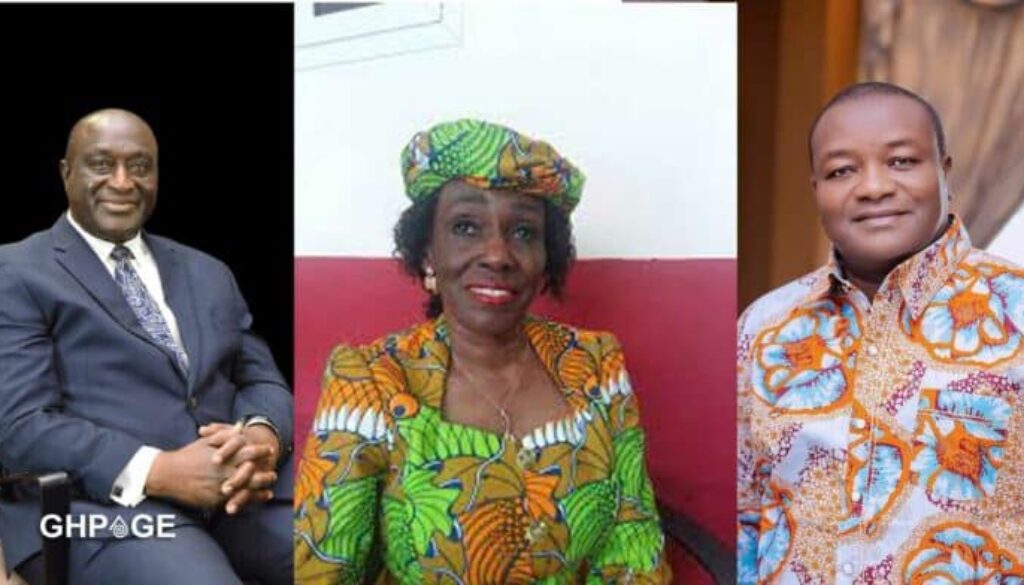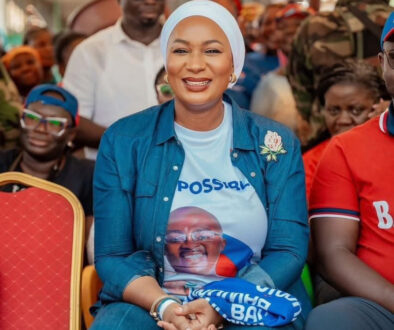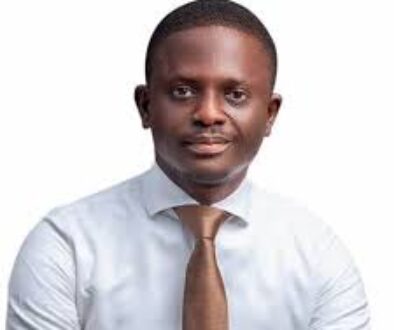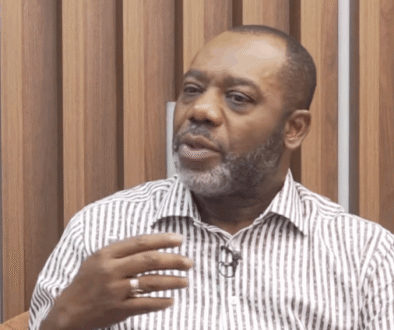Spotlight on Presidential Aspirants who broke away to form their own party
In Ghana, it’s not uncommon for political leaders and aspirants to break away from established political parties to form their own parties or movements.
This trend often arises from a desire to pursue specific policy goals or challenge the existing political order.

These instances illustrate the willingness of Ghanaian political leaders and aspirants to establish their own political parties or movements in pursuit of their political objectives and to challenge the status quo.
This phenomenon is reflective of the dynamic nature of Ghana’s political landscape.
Here are some notable instances of political leaders and aspirants who have taken this path:
Kwame Nkrumah

Alan,Nana Konadu Agyemang Rawlings,Hassan Ayariga
Ghana’s first President, Kwame Nkrumah, broke away from the United Gold Coast Convention (UGCC) to form the Convention People’s Party (CPP). This move played a pivotal role in Ghana’s struggle for independence.
Dr. Papa Kwesi Nduom
Dr. Nduom founded the Progressive People’s Party (PPP) after leaving the Convention People’s Party (CPP). He has run for the presidency multiple times as a candidate for the PPP.
Jacob Osei Yeboah
Jacob Osei Yeboah formed the United Renaissance Party (URP) after running as an independent candidate in the 2012 presidential election. He advocates for good governance and has contested subsequent elections as the URP’s candidate.
Hassan Ayariga
Hassan Ayariga left the People’s National Convention (PNC) and later formed the All People’s Congress (APC). He has contested presidential elections as the APC’s candidate.
Dr. Edward Mahama
Dr. Mahama, who was associated with the People’s National Convention (PNC), later formed the Grand Coalition and contested presidential elections as its candidate.
Konadu Agyemang Rawlings:
The former First Lady, Nana Konadu Agyeman Rawlings, made the decision to resign from the National Democratic Congress (NDC) in 2012. Her departure from the party was preceded by several events and factors:
Failed Presidential Primaries: In 2008, Nana Konadu Agyeman Rawlings contested the NDC’s presidential primaries against the late President John Atta Mills but experienced a significant defeat. This loss in the party’s internal race may have contributed to her decision to eventually leave the NDC.
Formation of the NDP: In 2012, Nana Konadu Agyeman Rawlings took the step of establishing her political party, the National Democratic Party (NDP). This move signaled her intention to pursue her political ambitions independently of the NDC.
Criticism of NDC: Following her departure from the NDC, Mrs. Rawlings became known for her critical stance towards the party. She voiced concerns and criticisms about the governance and administration of the country during the NDC’s tenure.
Determination to Stay Independent: Nana Konadu Agyeman Rawlings made it clear that she had no intention of returning to the NDC under any circumstances. Her resolve to maintain her independence in the political arena was unwavering.
John Rawlings’ Appeal: Despite their political differences, her husband, the late former President Jerry John Rawlings, appealed to her to consider returning to the NDC. He recognized the shared history and contributions they had made to the party but understood her reasons for leaving.
Alan Kyeremanten
Alan Kyeremanten, a prominent political figure in Ghana, has taken the significant step of resigning from the New Patriotic Party (NPP) and announcing his candidacy as an independent candidate for the upcoming 2024 general elections.
His decision to resign from the NPP and run as an independent candidate was motivated by several factors:
Perceived Unfair Treatment: Alan Kyeremanten expressed his dissatisfaction with how he was treated by the NPP during the recent super delegates congress. It appears that he felt that the party did not treat him fairly in the selection process or within the party’s internal dynamics.
Commitment to Address Key Issues: In his announcement, Kyeremanten emphasized his commitment to addressing critical issues facing the country. These issues include economic development, job creation, and social welfare. He appears to believe that running as an independent candidate would provide him with a platform to address these concerns effectively.
Desire to Serve the Ghanaian People: Kyeremanten’s decision to run as an independent candidate seems to stem from a genuine desire to serve the interests of the Ghanaian people. He may believe that this approach offers him greater freedom to focus on the needs and aspirations of the electorate.
Running as an independent candidate in a general election is a bold move in Ghana’s political landscape.
It signifies Kyeremanten’s willingness to challenge the established political order and to present his vision and policies directly to the voters.
His candidacy will likely be closely watched as the 2024 elections approach, and it will be interesting to see how this decision influences the political dynamics in Ghana.Source:ghpage.com






